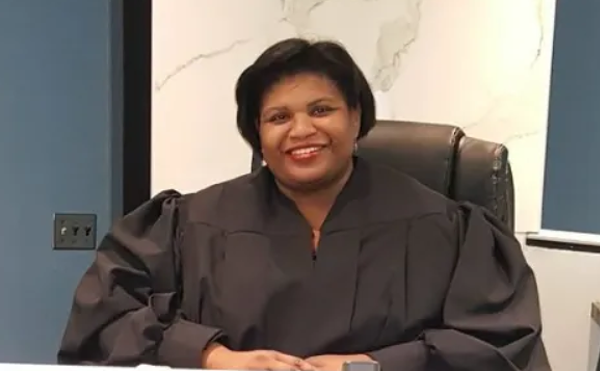About 50 percent of the city's $1.8 billion general fund budget is spent on salaries and benefits. Is there a way to address an accumulated deficit of at least $300 million and avoid the risk of insolvency without significantly reducing those worker costs? If not, by what percentage overall do you think they should be cut?
It's important for Mayor Bing and his team to get their collective hands around what is estimated to be a $250 to$300 million-budget deficit. According to yours and other media reports, his honor believes he can get there with 10% wage cuts and everyone taking 26 days of unpaid leave---I have to see how the numbers crunch and I am going to rely heavily on our budget experts---Mr. Irvin Corley, Council's Fiscal Advisor and Mr. Loren Monroe, the city's Auditor General.
Secondly, we have to get spending under control; we spend a lot of money on overtime alone. We also are the only major city without e-filing capabilities---this is shameful after spending $250 million on the DRMS computer system. E-filing important for several reasons: 1) it allows us to capture revenue faster (taxpayers get their money faster and the city gets money owed a lot quicker); 2) we will probably collect revenue that has somehow escaped us because of our lack of technology; in all modesty, we do not know how much revenue we fail to collect for not having this system in place; and, 3) our city workers in Income Tax has been begging for this technology now since the Archer Administration. Moreover, our healthcare costs are too high (we spend $200 to $300 million per year, roughly the size of our budget deficit) and that's why I support President Obama's plan for universal healthcare for all citizens. We spend way too much money on lawsuits, commonly referred to as Risk Management---between $90 and $125 million per year and as it relates to DPD lawsuits---that points to a lack of training, supervision and perhaps the lack of proper psychological screening of candidates to become police officers. Bottom line---we must get spending under control or nothing I stated in the aforementioned will matter and that is largely a function of the executive branch.
Do you have any other ideas as to how the city can either significantly cuts costs or raise revenue?
During the budget period, City Council looked at different departments to see what departments could be eliminated or merged. We need to look at each department and determine the most effective and efficient way to deliver quality services to the citizens and businesses in the city of Detroit. I believe we can reduce expenditures by combining departments that are duplicating services. In my opinion you have to look at spending versus revenue. It will be important to look at capping overtime expenditures in departments and the city negotiating flex schedules in certain departments.
Contracts should also be eliminated when they are not necessary. In addition, we need to review and renegotiate contracts and reduce the amount of funds we spend by 20-25%, while receiving the same level of service from the contractors. I will also look at other ways to bring additional revenue into the city and to sustain revenue. Lastly we need to implement E-Filing to capture city tax dollars which has been a lost revenue for the city of Detroit.
Would you support changing Detroit's city charter to allow district elections for some or all-council members?
At the present time, I will be supporting, whatever decision the voters both now and in the future on this issue.
The Detroit International Bridge Co. is attempting to purchase a section of Riverside Park so that it can build a new span adjacent to the Ambassador Bridge. At the same time, a publicly owned bridge is being planned for the Delray area. Explain your support for or objection to each plan.
I am opposed to the expansion of the Ambassador Bridge. At the present time there are many toxic companies in Southwest Detroit. Southwest Detroit has become the dumping ground for commercial businesses. There are health issues such as high levels of asthma within the community, smog, and strong vapors that are hazardous to the health of the community.
The City Council has twice voted to send the city's trash to landfills instead of the incinerator, and is exploring its legal options in an attempt to make that happen. The administration, meanwhile, is considering purchasing at least a share of the facility, and possibly all of it. As a council member, would you support or oppose continued use of the incinerator?
I am opposed to the continued use of the incinerator, however, I voted to close the facility due to health issues surrounding community. I'm in favor of an aggressive recycling program that will be beneficial to the community.
Given the city's fiscal crisis, what, if anything, would you do as a council member to help support the arts and culture in the city?
I remain a strong supporter of the Arts. The DIA has a management agreement that has taken this facility to a new level. Due to state, and city budget cuts to the various Arts programs, we must find creative ways to keep the Arts alive within our community. We have many foundations in the region that have taken initiative, such as, A. Alfred Taubman who supported the Center for Creative Studies development in the New Center area. This is an example of the public private partnerships that will help save our great City.
What have you done personally or professionally to help advance civil rights, regional cooperation, race relations, poverty reduction, pro-environmental efforts, or any other similarly significant cause?
I have been able to utilize my negotiation experience and leadership skills to bring civility and consensus to the council so that the business of Detroit is not only a priority but is also effectively managed. I have completed several governmental courses at the University of Michigan Dearborn and the National League of Cities. This instruction has given me insight and has made me a more effective Council Member. I have been engaged in the community 6-7 days a week. Since my tenure, I have made numerous affiliations with business, union, religious and community organizations. In addition, in May 7,2009, I was honored to be the first and only City Council Member to graduate from the Detroit Police Department Citizen Police Academy. By participating in this program, I gained valuable knowledge and understanding of the inner workings of the Police Department. This experience was especially helpful in evaluating the budgetary requests and needs of the Police Department.
At the present I am the chair of the Skilled Trades Task Force. This task force was developed to help the unemployed as well as the returning citizens find employment within various skilled trades. As a child of the labor movement, my late mother and aunts were all educators and DFT activists. As a former union president, my record is unmatched on all of aforementioned areas presented by this question.
As a council member, what could you do to help Detroit capitalize on the burgeoning green economy?
One of the primary responsibilities of a council member is to approve contracts. Beginning in 2010, I will seek to require vendors wishing to do business with the city of Detroit, not only provide how a contract will provide cost-savings but result in a favorable environmental impact upon Detroit and its residents. Possible avenues to be explored include contracts for cleaning supplies, which are environmentally friendly. As vehicles are replaced, consideration may be given to purchasing vehicles that utilize hybrid technology or alternative fuels.
What innovative ideas do you have in regard to dealing with the massive amounts of vacant and abandoned property in Detroit?
In February 2008 the U.S. Postal Service survey released and reported the City of Detroit had over 200,000 vacant homes and buildings. The challenge is we must be creative to salvage this great city, by letting individuals move into the homes, repair them, and give the new homeowner a tax break. We have received Stimulus dollars just for demolition of vacant properties. At the same time we must secure these vacant buildings by boarding them up or tearing them down to make our neighborhood safe for our children. Our children need to be safe going to and from school----they need and deserve safe passages everyday of their young lives.
Name one of your favorite movies about politics? What is it about this movie that made an impression?
All The President's Men. This movie chronicled the life and times of the White House administration during the Watergate era. One of the most pointed lessons to be learned is that 1) corruption occurs even at the most highest, trusted levels of government, 2) corruption is always revealed, 3) the cover-up is usually worse than the corruption, and 4) a free press is essential to a progressive, democratic society.
What book dealing with politics or government — either fiction or nonfiction — would you recommend others read? Why?
Mayor Coleman A. Young's Biography "Hard Stuff."
What piece off music (other than Marvin Gaye's "What's Going On,") has affected you in a political, moral or social sense? Please explain why.
The Temptations "The Impossible Dream" , Kim Weston "Lift Every Voice and Sing" Nina Simone' "Young Gifted and Black". "The Impossible Dream" (from the Temptations album: In A Mellow Mood) when I decided to run for the Detroit City Council, everyone told me I did not have a chance in the world to win, no one knew me. I did not let the statements discourage me. I continued on to victory.
What question should have been included in this, but wasn't? And what would your answer to that question be?
What is Detroit's next economy?






